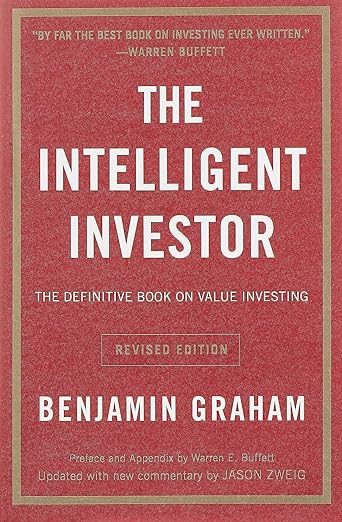Benjamin Graham’s The Intelligent Investor Chapter 8 (The Investor and Market Fluctuations)

In a section of his letter to Berkshire Hathaway shareholders on February 28, 2014 for FY2013, Warren Buffett shared “Some Thoughts About Investing” (Post: Investment is most intelligent when it is most businesslike) .
He also shared more about Benjamin Graham, his teacher and friend, and about Benjamin Graham’s book, The Intelligent Investor .
“Ben’s ideas were explained logically in elegant, easy-to-understand prose (without Greek letters or complicated formulas). For me, the key points were laid out in what later editions labeled Chapters 8 and 20. (The original 1949 edition numbered its chapters differently.) These points guide my investing decisions today.”
So what is Chapter 8 in the later editions of The Intelligent Investor all about?
The takeaway lesson from Chapter 8 of The Intelligent Investor is Benjamin Graham’s parable about Mr Market, a character that Benjamin Graham used to demonstrate the behavior of the stock market.
Here is the Benjamin Graham parable: “Imagine that in some private business you own a small share that cost you $1,000. One of your partners, named Mr Market, is very obliging indeed. Everyday he tells you what your interest is worth and further offers to buy you out or sell you an additional interest on that basis. Sometimes his idea of value appears plausible and justified by business developments and prospects as you know them. Often, on the other hand, Mr Market lets his enthusiasm or his fears run away with him, and the value he proposes to you seems to you a little short of silly.
“If you are a prudent investor or a sensible businessman will you let Mr Market’s daily communications determine your view of the value of $1,000 interest in the enterprise? Only in case you agree with him, or in case you want to trade with him. You may be happy to sell out to him when he quotes you a ridiculously high price, and equally happy to buy from him when his price is low. But the rest of the time you will be wiser to form your own idea of the value of your holdings, based on full reports from the company about its operations and financial position.
“The true investor is in that very position when he owns a listed common stock. He can take advantage of the daily market price or leave it alone, as dictated by his own judgment and inclination. He must take cognizance of important price movements, for otherwise his judgment will have nothing to work on. Conceivably they may give him a warning signal which he will do well to heed – this in plain English means he is to sell his shares because the price has gone down, foreboding worse things to come. In our view such signals are misleading at least as often as they are helpful. Basically, price fluctuations have only one significant meaning for the true investor. They provide him with an opportunity to buy wisely when prices fall sharply and to sell wisely when they advance a great deal. At other times he would be better off if he forgets about the stock market and pays attention to his dividend returns and to the operating results of his companies.”
Related posts: (1) The Intelligent Investor Chapter 20
(2) Mr Market’s Incurable Emotional Problems.
Recommended reading: